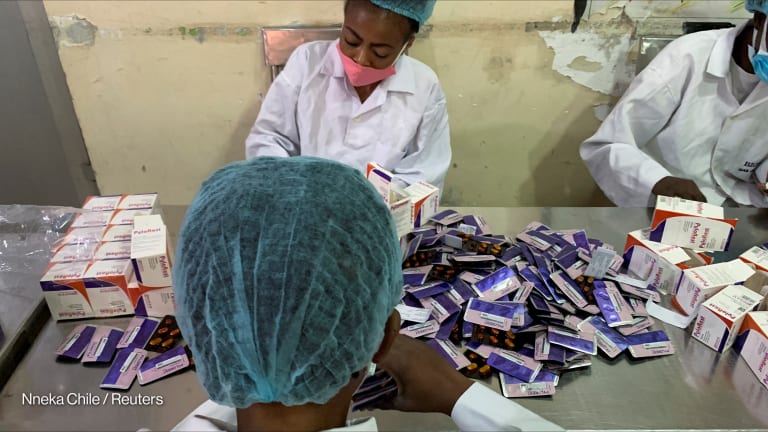
WASHINGTON — In an audit published Thursday, the U.S. State Department’s Office of Inspector General described wide-ranging concerns about the management approach taken by the Office of the U.S. Global AIDS Coordinator and Health Diplomacy, which provides leadership for the U.S. President’s Emergency Plan for AIDS Relief.
“Sometimes decisions are made without clear rationale other than ‘[the Global AIDS Coordinator] told you to.”
— “Audit of the Department of State’s Coordination and Oversight of the U.S. President’s Emergency Plan for AIDS Relief,” quoting a country team memberThe independent watchdog pointed to multiple complaints from members of PEPFAR’s country teams, who cited unrealistic targets, an unwillingness by PEPFAR’s leaders to hear differences of opinion, and a “dictatorial” approach by OGAC to country planning. The audit attributed these concerns “to OGAC leadership not effectively applying department leadership and management principles.”
More on PEPFAR:
► PEPFAR seeks coordination with other aid donors, says US AIDS chief
Since its creation by President George W. Bush in 2003, PEPFAR has channeled more than $80 billion to the fight against HIV in more than 50 countries. The initiative is currently led by Deborah Birx, who was appointed U.S. Global AIDS Coordinator by President Barack Obama in 2014 and retained in her position by President Donald Trump.
The OIG audit examined programs and planning processes in Kenya, Malawi, Tanzania, and Uganda.
Many of the harshest criticisms relate to the process for creating PEPFAR’s annual country operational plans. Of 229 responses received from country team members about the COP development process, 183 — or 80% — were negative.
“There are actually very few attempts at consensus building during COP development. Mostly, and increasingly, it’s just [OGAC] telling country teams what they must do and even what targets they must set for themselves. It is very much a one-way communication transmission,” a country team member was quoted as saying in the report.
Several of the responses described unreasonable targets set by PEPFAR’s leaders and an unwillingness to hear feedback from country teams about why they might not be achievable.
“In the last 2 years, there has been no negotiation with the country. OGAC has set the targets using . . . estimates. It is ‘take it or leave it.’ The targets have not been negotiable. [We] have hardly achieved the targets because they are unrealistic,” another respondent was quoted as saying.
Since Trump took office in 2017, the White House has proposed repeated cuts to PEPFAR’s budget, which the U.S. Congress has rejected every year. Birx has responded to budgetary pressure by emphasizing the importance of prioritizing resources for the places and interventions in which they can be most effective in helping countries achieve epidemic control.
In response to the complaint that PEPFAR’s leaders are unwilling to negotiate with countries about performance targets, an OGAC leadership official was quoted in the report as defending the process, saying that “in years past, [we] spent a lot of time haggling over targets for very little changes. Not productive.”
In addition to concerns about performance targets, country team members cited broader issues related to OGAC’s management approach. Of 68 statements the inspector general’s office received about OGAC’s leadership, 49 — or 72% — were negative. The auditors cited responses that described OGAC’s leadership as “dictatorial,” “directive,” and “autocratic.”
“Sometimes decisions are made without clear rationale other than ‘[the Global AIDS Coordinator] told you to,” one respondent told the auditors.
Another reported that an implementing agency with “high level technical staff” has been “directed to read the [planning] letter and do exactly that.”
“Let’s just obey and move on. This is a worrying trend. Working in fear and a space where nothing is negotiable. It is causing a lot of strain with the government. Also losing gains made in the country. There should be room for negotiation and allow people to air their views,” the same person reported.
The auditors did find that PEPFAR’s country coordinators — the top OGAC employees in the countries where PEPFAR operates — were effectively coordinating with the initiative's interagency partners.
“Overall, across the four missions, a majority of PEPFAR country team members that OIG interviewed had positive views about reaching in-country consensus on planned COP direction and told OIG that they had good working level relationships and that the teams worked well and employed different strategies to resolve disputes,” the auditors found.
In a written response to the audit that is dated Jan. 27, 2020, Birx wrote that her office was “pleased” with the findings related to “effective coordination and oversight of the PEPFAR interagency partners, program and performance.”
A State Department spokesperson said the inspector general had found “that OGAC has established monitoring and evaluation activities that foster accountability and promote the effective use of resources toward achieving epidemic control.”
In response to critical findings about the COP process and leadership, Birx wrote that the office “continually seeks and creates open dialogue to ensure improvements in the COP process” and that in response to a summer 2019 session with the OIG, Birx’s office “immediately began addressing the perceptions reported from the field visits.”
“Thus, several improvements in the COP development process that address the relevant OIG recommendations have already been implemented and are in place for COP 2020 planning and development,” Birx wrote.
The State Department spokesperson said efforts were being made to shorten the COP cycle to allow for more time to implement PEPFAR. “We will continue to look carefully at the timeline for every PEPFAR process in order to ensure robust planning, quality implementation, and efficient business practices that deliver timely funding and lifesaving impact to our partner countries.”








